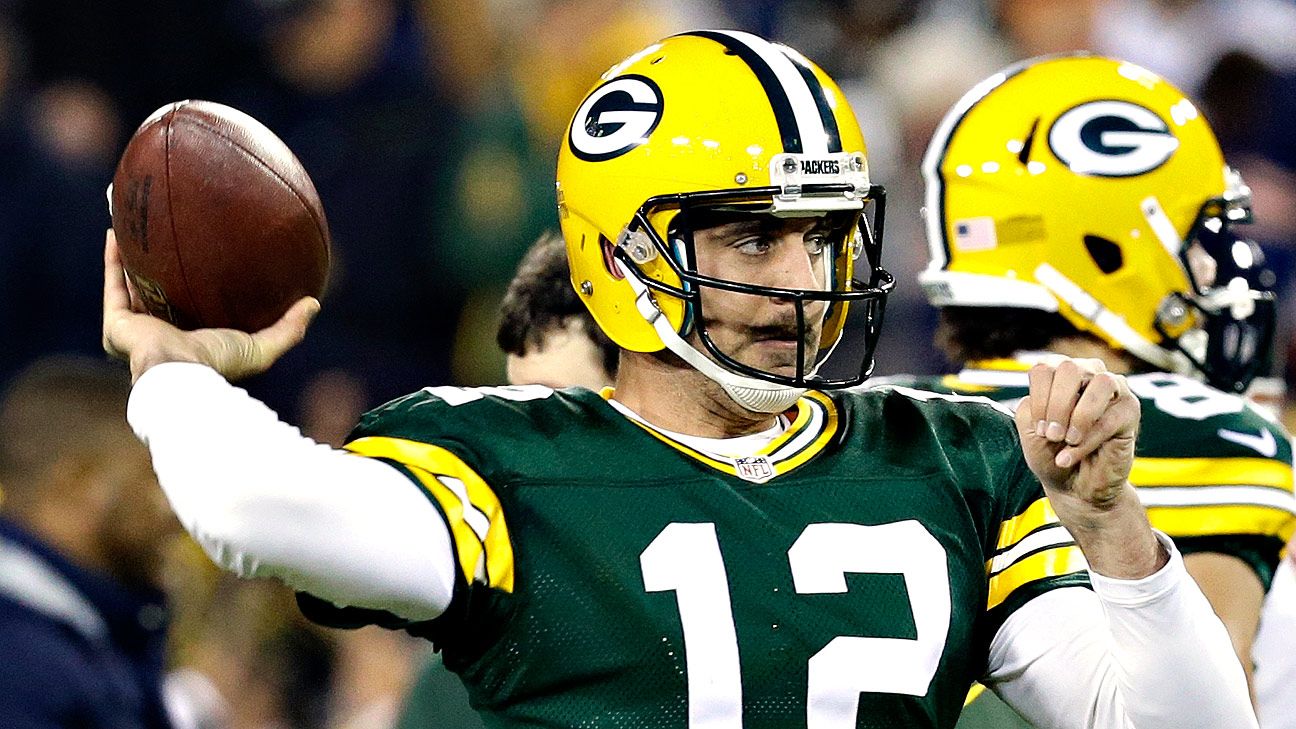ATLANTA — Football helmets could be getting another boost toward enhanced safety features with announcements by two major manufacturers Friday.
Riddell has partnered with Carbon, a tech company that features 3D printing, to bring digital design innovation and customization to head protection through its new Diamond helmets. And VICIS is expanding its $30 million fundraising program, adding further investments from quarterbacks Aaron Rodgers and Alex Smith.
The new Riddell helmets include a 3D-printed liner inside the helmet. Initially available in the Riddell SpeedFlex Precision Diamond model, the process allows Riddell to scan an athlete’s head and contour the helmet to it. The helmets will be made up of more than 140,000 individual struts that absorb forces from linear and rotational impacts. Using its database of more than 5 million impacts, Riddell can customize the tuning of those struts to adjust helmet structures. That could be key to creating position-specific helmets, something the NFL believes is coming.
“We work very closely with grassroots programs and the NFL and major college football to understand the needs of customers and all the constituents who interact with the helmet,” said Thad Ide, Riddell’s senior vice president of research and product development. “We have our innovation road map that has led to smart technology and developments. Our helmet line has grown through the years. … I could see in the next two to three years having these [for specific positions], with instrumentation in them. It will be difficult to make a helmet that will not have this technology.”
The SpeedFlex helmet is manufactured for elite athletes and has cost $1,750. The SpeedFlex Precision Diamond will retail for about the same price.
VICIS did not release the amount of funding approved by the two star quarterbacks, Rodgers and Smith, through Rx3 Ventures. The additional funding will help VICIS meet demands for its ZERO1 YOUTH football helmet, the youth version of its ZERO1 that ranked atop the NFL helmet ratings in 2018.
“We have a responsibility to protect young players for football to continue to thrive,” Smith said. “Helping innovators like VICIS allows me to give back to the sport I love in a way that will make a difference to the next generation of athletes.”
The ZERO1 YOUTH is the first football helmet engineered specifically for young players and the impacts they encounter on the field.
“We develop our protective technologies by working closely with subject-matter experts such as NFL players, equipment managers and medical staff,” said Dave Marver, VICIS CEO and co-founder. “We are gratified by this additional investment from Alex and Aaron, and even prouder that our new youth helmet is in such high demand.”
Lawyers representing former NFL players have estimated that payouts from the concussion settlement with the league, once predicted to reach $1 billion, will top $1.4 billion. The settlement, which took effect January 2017, resolved thousands of lawsuits that accused the NFL of hiding what it knew about the risks of repeated concussions.
The NFL again will test helmets this year, with potentially nine or 10 new models available. That shows the dynamic movement in the helmet industry, and NFL executive vice president of health and safety Jeff Miller welcomes any and all improvements that benefit safety.
“It is an important component, just like seeing different helmet shells and inner layers and new material and a replacement for foam,” Miller said. “There’s a fair amount we see of new ideas and innovation in the helmet liner. So the fact Riddell is working on that part of an already successful helmet to make it better for players is an important aspect of how helmets can become more and more protective.”
Ide stresses there is more to player health and safety than helmets, and that continued diligence is essential.
“Helmets are one piece of the puzzle,” Ide said. “Medical care, coaching, rules changes, better protective equipment — there are a lot of things that go into making the game safer.”
